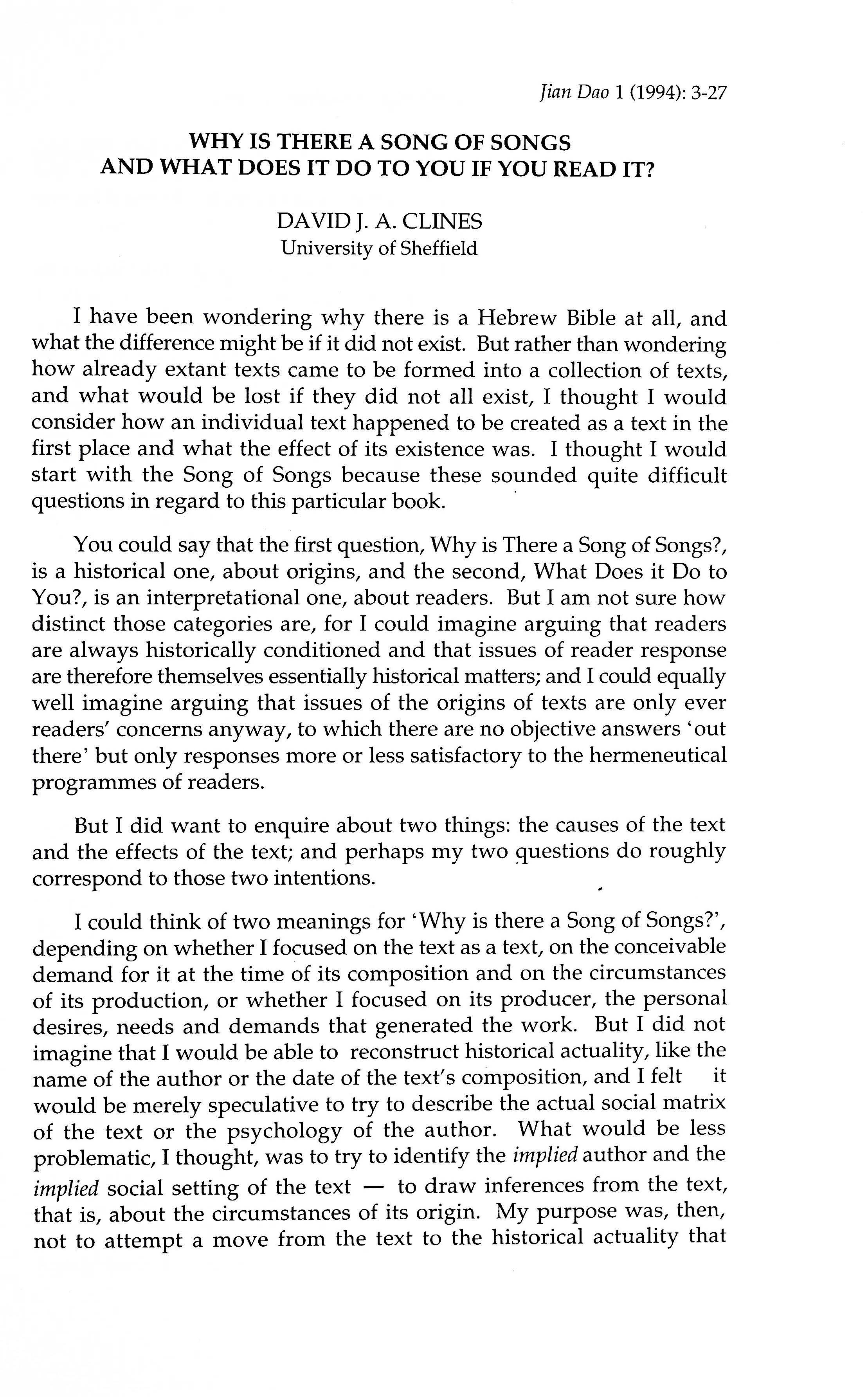Why is There Song Of Songs? And What Does It Do to You When You Read It?(為何雅歌存在?它與你何干?) / David J. Clines 克賴斯
撮要
本文旨在硏究雅歌的組成及讀者的領受,討論「爲何雅歌存在?」及 「它與你何干?」兩個問題。前者是關乎經文的來源,後者是關乎對讀者的影響。在第一部分,作者嘗試用質料鑑別法和心理分析法來了解經文的組成。他首先探討在何種條件下促成經文的產生,及經文反映了何種物質(社會與經濟)的環境。其次他討論到經文所顯示出經文原作者在創造此經文時的心理情況。作者指出,他並非意欲復原一個經文原來的歷史背景,或作者原來的心理狀態;只是就經文本身作推敲。在第二部分,作者探討經文對受衆的影響,他採用跨時代與同時代的兩種模式來分析。就是說,先分析經文在歷代所引致的不同註釋,然後才探詢經文對當代讀者所可能產生的作用。作者關注的是,到底經文企圖傳遞甚麼觀念給讀者,又希望敎他們忽略甚麼。
ABSTRACT
This paper studies both the composition of the Song of Songs and its reception. ‘Why is there?’ addresses the origins of the text, ‘What does it do to you?’ addresses the effect on readers. In the first part I attempt to answer the question of the text’s composition by way of a materialist criticism and a psychoanalytic criticism. I ask first what are the necessary conditions of the text’s production, what material (social and economic) circumstances are implied by the text. I ask secondly what psychoanalytic implications may be drawn from the text about the author as producer of the text. I will not be reconstructing the historical setting of the text’s origin or the author’s psyche, but simply drawing inferences from the text. In the second part I propose answers to the question of effect both in a diachronic and a synchronic mode, first by analysing the effects of the text in the history of its interpretation, and secondly by suggesting the effects it may have upon contemporary readers. The emphasis will be on what ideology the text persuades readers to adopt, and what alternatives it persuades them to ignore.
原載於《建道學刊》1期(1994年1月),頁3-27。
Latest Articles
新手牧者研究計劃(三):新手牧者的身心靈狀態 / 盧慧儀
2025 年 11 月 19 日
個體與關係:滕近輝思想中「深化」的靈性觀 / 倪步曉
2025 年 11 月 18 日
香港九龍塘基督教中華宣道會之起源和發展史/陳智衡
2025 年 10 月 20 日
Highlights
[電子書]困境與抉擇:「建道研究中心30週年誌慶」跨學科研討會論文集/廖炳堂、倪步曉主編
2025 年 1 月 2 日
從梧州到長洲:建道神學院125年的挑戰與恩典 / 陳智衡
2023 年 10 月 1 日
微小教會的見證/高銘謙
2023 年 6 月 1 日







